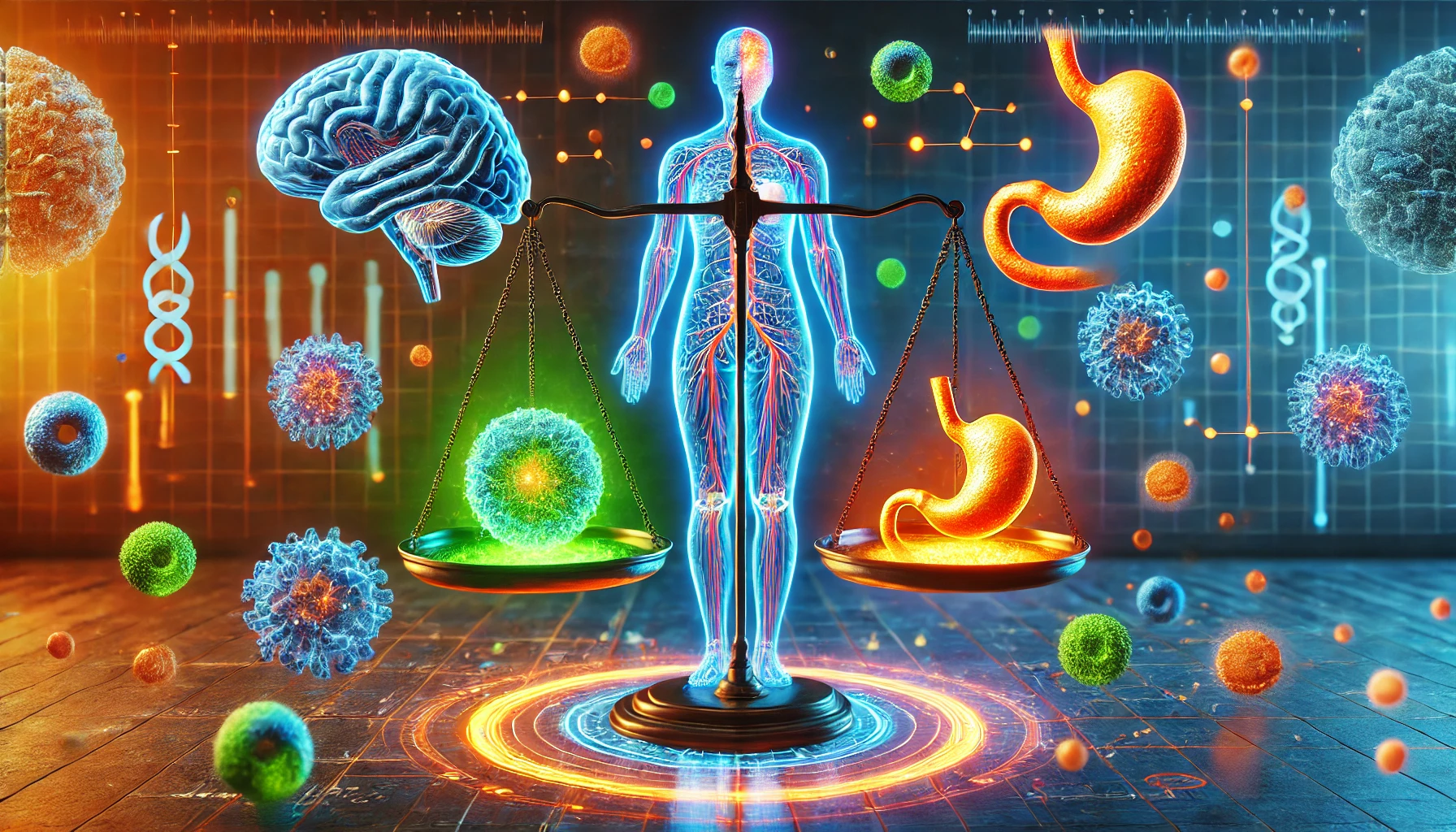Introduction
Did you know that your hormones directly influence your immune system? When your hormones are balanced, your immune defenses are strong, and you’re less likely to get sick. However, hormonal imbalances can weaken immunity, increase inflammation, and make your body more susceptible to infections and chronic diseases.
But how exactly do hormones affect the immune system? And what can you do to keep both in balance?
In this article, we’ll explore how key hormones impact immunity, the signs of hormonal imbalance, and how to naturally regulate your hormones for a stronger immune response.
1. How Do Hormones Affect Your Immune System?
Hormones are chemical messengers that regulate nearly every function in the body, including immunity. The endocrine system (which produces hormones) and the immune system work together to keep you healthy.
🔹 Key Ways Hormones Influence Immunity:
✔ Regulate inflammation – Some hormones control immune responses, preventing excessive inflammation. ✔ Impact white blood cell production – Hormonal shifts can increase or decrease immune cell activity. ✔ Affect stress response – Chronic stress can lead to hormonal imbalances that suppress immunity. ✔ Influence gut health – Hormones affect the gut microbiome, which plays a major role in immune function.
📌 Fact: Studies show that hormonal fluctuations in women (such as during pregnancy, menopause, or menstrual cycles) can impact immune strength.
2. Key Hormones That Influence the Immune System
1. Cortisol (The Stress Hormone)
✔ Short-term stress boosts immunity, but chronic stress weakens it. ✔ High cortisol levels reduce white blood cell production, making it harder to fight infections. ✔ Chronic stress increases inflammation and autoimmunity risk.
🔹 Tip: Reduce cortisol naturally by practicing meditation, deep breathing, and maintaining a regular sleep schedule.
2. Estrogen (The Immune Booster in Women)
✔ Estrogen enhances immune function, which is why women tend to have stronger immune responses than men. ✔ However, excess estrogen can trigger autoimmune conditions. ✔ Low estrogen (during menopause) can weaken immunity.
🔹 Tip: Balance estrogen with a diet rich in cruciferous vegetables (broccoli, kale, cauliflower) and healthy fats.
3. Testosterone (The Immune Modulator in Men)
✔ Testosterone has anti-inflammatory effects but can also suppress immune function if levels are too high. ✔ Low testosterone levels (common with aging) increase inflammation and weaken immune defenses.
🔹 Tip: Naturally boost testosterone with strength training, quality sleep, and zinc-rich foods (pumpkin seeds, lean meats, shellfish).
4. Thyroid Hormones (The Energy Regulators)
✔ The thyroid controls metabolism and immune function. ✔ Low thyroid hormones (hypothyroidism) can weaken immunity and cause fatigue. ✔ High thyroid hormones (hyperthyroidism) can overactivate the immune system, leading to inflammation.
🔹 Tip: Support thyroid health with selenium-rich foods (Brazil nuts, eggs, fish) and iodine sources (seaweed, dairy, eggs).
5. Melatonin (The Sleep and Immune Connection)
✔ Melatonin is the hormone that regulates sleep. ✔ It also enhances immune function by supporting the production of white blood cells. ✔ Low melatonin levels increase the risk of infections and chronic inflammation.
🔹 Tip: Improve melatonin production by reducing blue light exposure before bed and maintaining a consistent sleep schedule.
3. Signs of Hormonal Imbalance That Affect Immunity
If your hormones are out of balance, you may experience:
⚠ Frequent colds and infections – Weakened immune response. ⚠ Chronic fatigue and brain fog – Hormonal imbalances slow down metabolism. ⚠ Digestive issues – Poor gut health linked to hormonal fluctuations. ⚠ Unexplained weight gain or loss – Affected by thyroid and stress hormones. ⚠ Mood swings and anxiety – Caused by imbalanced cortisol, estrogen, or testosterone.
📌 Tip: If you have multiple symptoms, consider checking your hormone levels with a healthcare provider.
4. How to Balance Hormones Naturally for a Stronger Immune System
1. Eat a Hormone-Balancing Diet
✔ Healthy fats – Avocados, olive oil, nuts (support hormone production). ✔ Protein-rich foods – Eggs, salmon, legumes (help regulate blood sugar). ✔ Leafy greens & fiber – Broccoli, spinach, flaxseeds (support estrogen detox). ✔ Fermented foods – Yogurt, sauerkraut, kimchi (improve gut microbiome).
🚨 Avoid: Processed foods, excess sugar, and alcohol, which disrupt hormone balance.
2. Get Quality Sleep (7–9 Hours Per Night)
✔ Poor sleep disrupts cortisol, melatonin, and thyroid function. ✔ Keep a consistent bedtime and avoid screens 1 hour before sleep.
3. Manage Stress to Lower Cortisol
✔ Try yoga, meditation, or deep breathing exercises. ✔ Take magnesium supplements to support relaxation.
4. Exercise in Moderation
✔ Strength training boosts testosterone and supports metabolism. ✔ Too much cardio raises cortisol, so balance with low-impact workouts.
5. Get Sunlight and Support Vitamin D Levels
✔ Sun exposure helps regulate melatonin, cortisol, and immune function. ✔ If you don’t get enough sun, consider Vitamin D supplements.
5. The Long-Term Benefits of Balancing Hormones for Immunity
By keeping your hormones balanced, you can: ✔ Improve immune strength and reduce illness. ✔ Feel more energized and avoid chronic fatigue. ✔ Lower inflammation and prevent autoimmune risks. ✔ Maintain a healthy metabolism and weight.
Conclusion: Strengthen Your Immunity by Balancing Hormones
Your hormones play a major role in immune health, and keeping them in balance can prevent illnesses, reduce inflammation, and boost your overall well-being.
✔ Eat a nutrient-dense diet. ✔ Prioritize sleep and stress management. ✔ Exercise in moderation and support gut health.
🔹 Which of these hormone-balancing tips will you start implementing today? Take control of your health and build a stronger immune system naturally! 🚀
